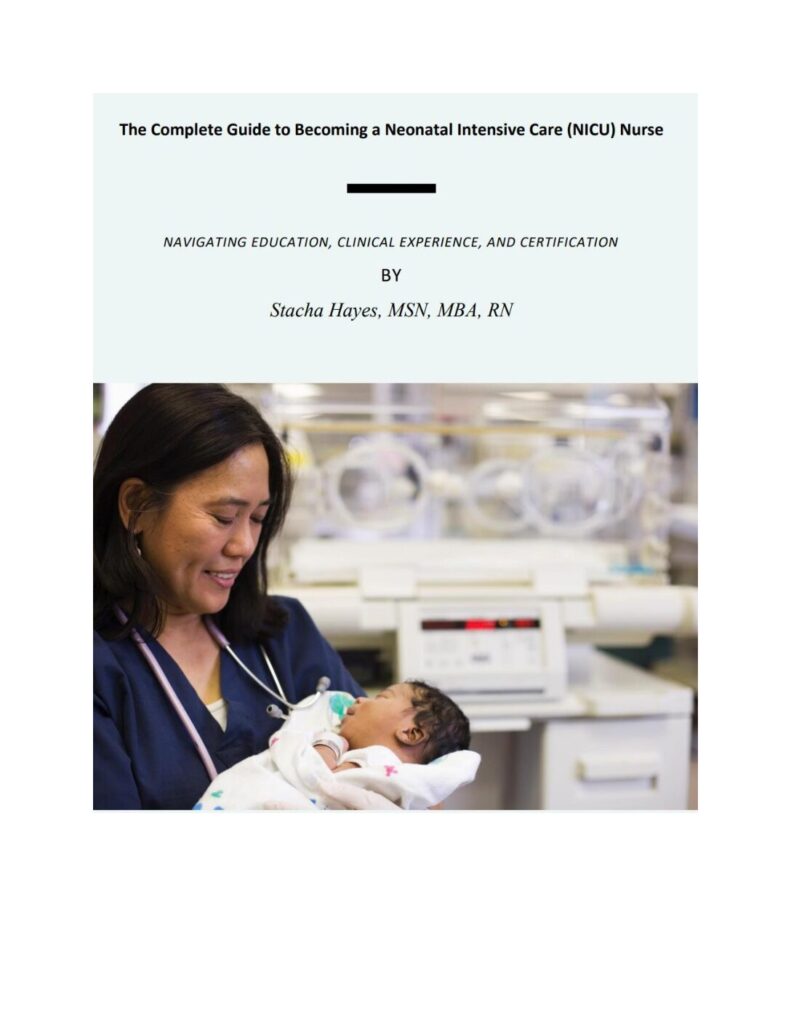What is a Neonatal Nurse?
Neonatal nursing is a specialty of nursing that focuses on caring for babies born prematurely or who have health issues including birth abnormalities, infections, or heart abnormalities. Registered nurses who specialize in working with these young, fragile patients are known as neonatal nurses. In Neonatal Intensive Care Units (NICUs), neonatal nurses provide highly specialized medical care to at-risk babies. Neonatal nurses work predominantly with infants less than one-month-old; they may, however, work with children up to toddler age.
Neonatal nurses are highly trained in the finer points of caring for infants, including special procedures for intravenous infusions, blood draws, and oxygen administration.
Neonatal nurses are experts in the most delicate elements of newborn care, such as IV infusions, blood draws, and oxygen administration, especially in the NICU where infants are transferred due to prematurity or significant medical conditions.
During a shift in the NICU, Neonatal nurses might care for one to four newborns, each with their own set of demands and problems. Care activities range from diaper changes to administering medication.
4 NICU Levels
Level I NICU – A Level I facility, the most basic level of neonatal intensive care, can perform neonatal resuscitation, treat neonates, stabilize and care for children born between 35 and 37 gestational weeks, and treat children born with diseases at fewer than 35 gestational weeks. In the latter situation, this is generally a temporary solution until the infant is transferred to a facility that can offer the appropriate level of care. Pediatricians, general practitioners, nurses, and other medical experts are generally found in Level I NICUs.
Level II NICU – Level II NICUs are the next level of newborn intensive care, providing all the services of a Level I NICU as well as extra specialized services. Pediatricians, neonatologists, neonatal nurses, and all other medical specialists needed in a Level I NICU make up this team. Level II NICUs may care for babies born as early as 32 weeks gestation or weighing as little as 1,500 grams. They are also appropriate for newborns with undeveloped immune systems or mild infections, as well as those who require mechanical breathing or ongoing care following intense therapy.
Level III NICU – After Level II NICUs, Level III NICUs are the next level of newborn intensive care. They must have pediatric surgeons, pediatric medical subspecialists, pediatric anesthesiologists, and pediatric ophthalmologists in addition to the layers necessary for a Level II NICU. Level III NICUs are equipped with an environment designed to provide critical life support, specialized care for infants born as early as 27 to 30 weeks, treatment for serious illnesses, and comprehensive respiratory support, including high-frequency ventilation and advanced imaging, to infants born as early as 27 to 30 weeks.
Level IV NICU – A Level IV NICU is the highest level of neonatal intensive care, with pediatric surgical subspecialists as well as all the professional care professionals and specialized services found in a Level III NICU. It also provides services like extracorporeal membrane oxygenation (ECMO) and hospital-to-home transportation. A Level IV NICU is usually part of a bigger hospital that specializes in the surgical treatment of significant congenital or acquired diseases.
Steps to Become a Neonatal Nurse
Step 1 – Graduate from an accredited Nursing Program
This can be either a 2-year or 4-year program. Some associate degree nurses go to obtain a
Bachelor’s degree (BSN) in nursing via an RN-to-BSN program, while working in the nursing field.
Step 2 – Pass the NCLEX to obtain an RN license
Step 3 – Get experience
Opportunities to get experience working in the NICU can be completed during nursing school clinicals or shortly after graduating as an internship or externship opportunity. Most hospitals offer externship opportunities during certain times of the year. These opportunities often turn into full-time staff positions. (See Blog on How to Find a Job as a Registered Nurse)
Certifications and Advanced Degrees
After working as a Neonatal nurse for a couple of years, you will want to consider certification to demonstrate your expertise in the specialty. The National Certification Corporation (NCC) administers most neonatal certifications. Additionally, you may wish to return to school to pursue a Master’s to be considered for role advancement and increased earning potential.
For more information about becoming a Neonatal Nurse, consider purchasing the following comprehensive guide on becoming a NICU nurse through our Nurse Resource online Shop.

This book is an invaluable resource for anyone interested in becoming a NICU nurse or for current NICU nurses looking to expand their knowledge and skills. It will provide readers with a comprehensive understanding of the education, training, and certification required to excel in this challenging and rewarding field, as well as the practical knowledge and skills needed to provide the highest quality of care to newborns and their families. With this book, you will be well on your way to a successful and fulfilling career in neonatal intensive care nursing! Purchase your copy of The Complete Guide to Becoming a NICU Nurse today!
Nurse Resource Team






